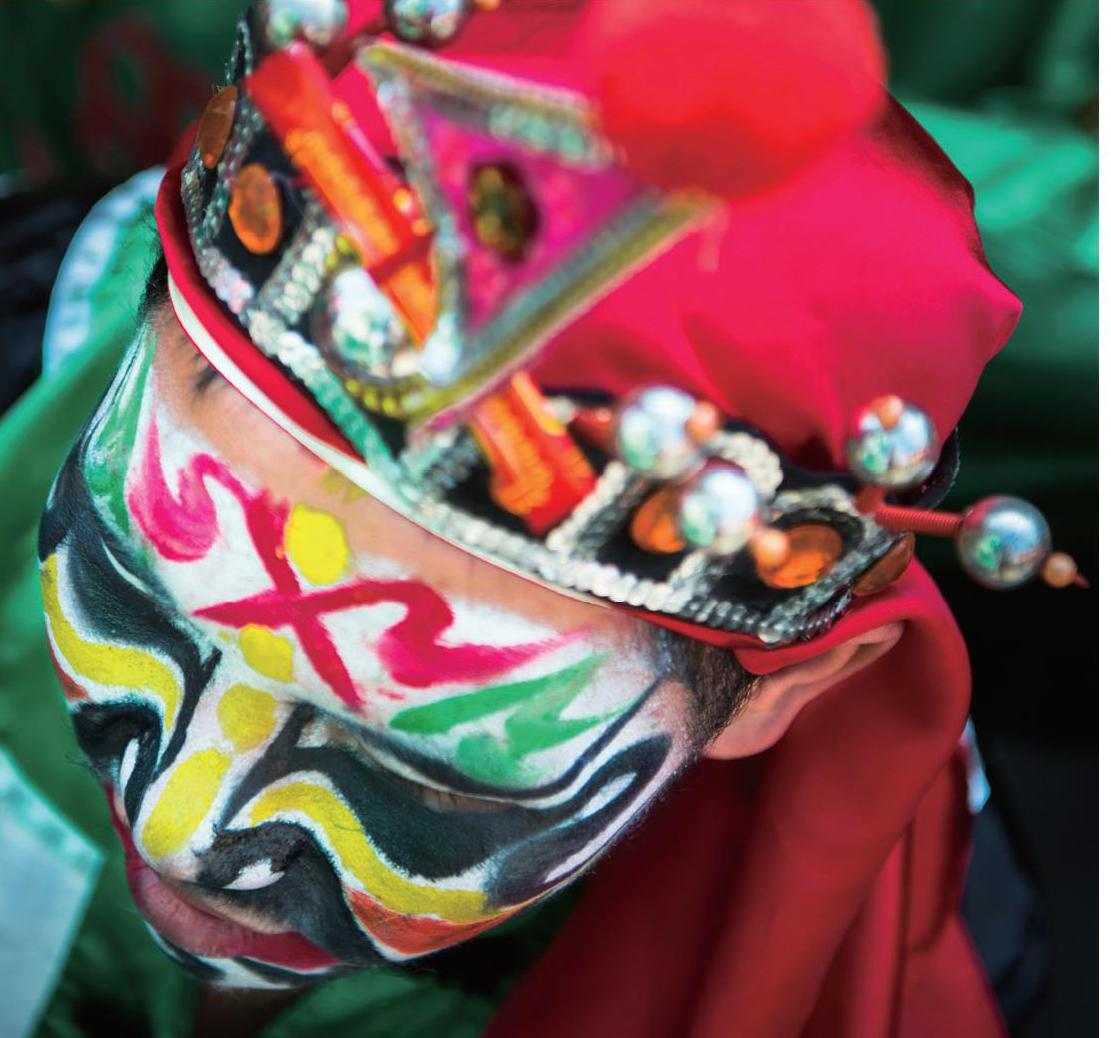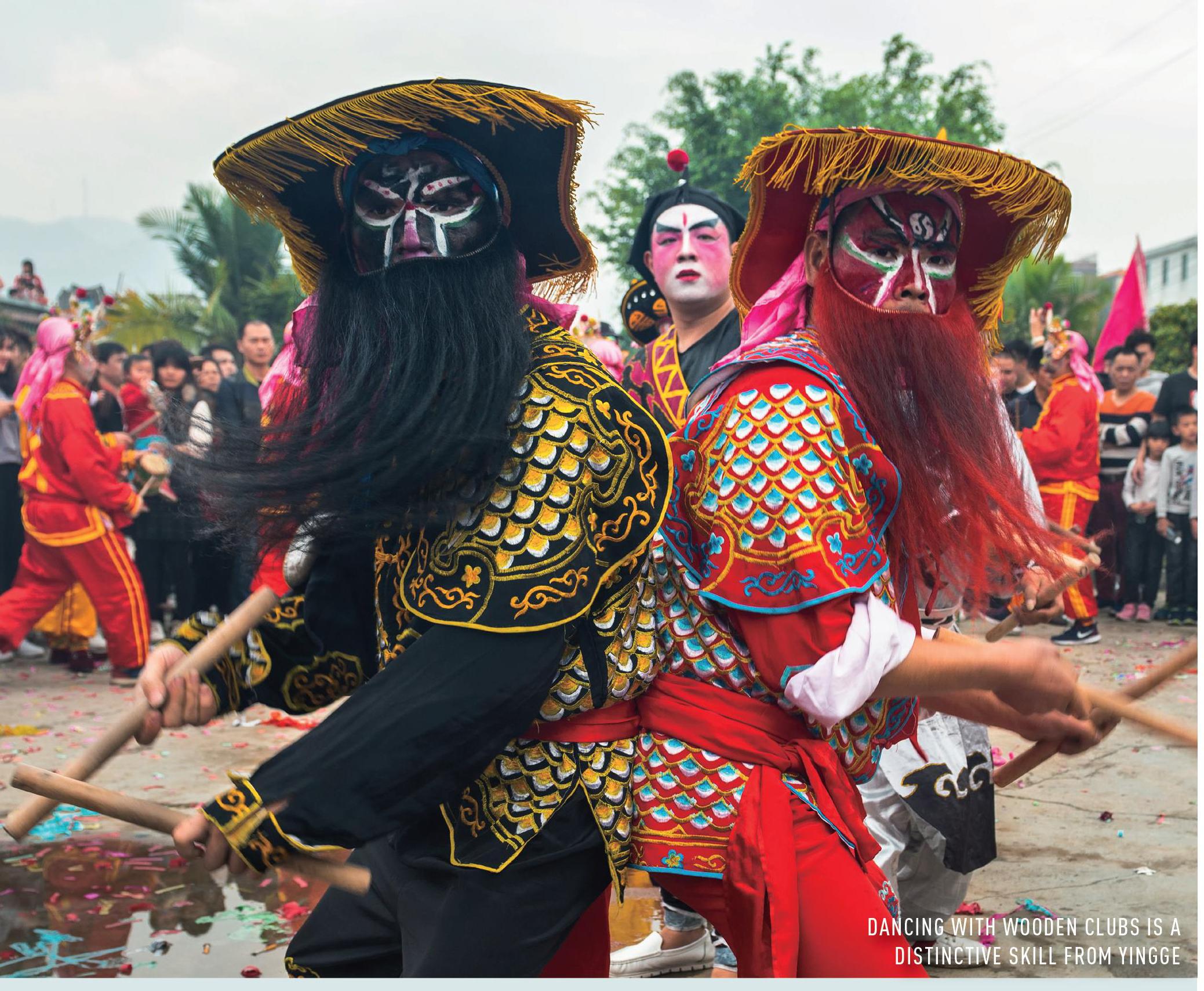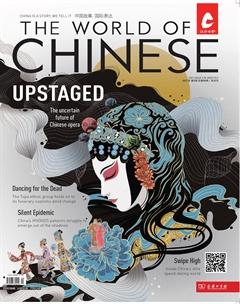The Changing Face of YinggeDance
Hatty Liu



The whole village works together to keep Punings traditional “hero dance” alive
普寧英歌:每逢节庆,广东普宁的村民们放下农活,画上脸谱,跳起“英雄之舞”
Photography by Huang Ruide (黄瑞德)
Text by Hatty Liu
The ghosts are gone from Puning today, but that doesnt mean the locals dont relish a chance to play heroes.Yingge (英歌), written with the characters for “hero” and “song,” is a type of folk dance with 300 years of history from the Chaoshan region of Guangdong province. It evolved from the sacrificial Nuo opera (傩戏) performed in various parts of southern China to welcome the spring, dispel evil spirits, and pray for good fortune.
While ancient Nuo opera consisted of religious masks, shamans, and scenes from various folk tales,Yingge dances have evolved to use face makeup and just one plot: the adventures of the legendary “108 Heroes” of Liangshan Mountain, best known from the classic novelOutlaws of the Marsh. The version performed in the villages around Puning, specifically, retells the heroes rebellion against the capital Daming Fu through acrobatic dances, martial arts, musical numbers, and other displays of talent. With 20 to 30 characters in the show, whole villages would turn out to perform in the past, and able-bodied young men had to take on the physically taxing roles of the heroes.
As young people move out of the villages, so are local folk arts gradually vanishing all around China. In Puning,Yingge is still danced during holidays such as the Lunar New Year, and the performers are generally amateurs—farmers who have put down their tools and put on costumes. Some of the parts are passed down in the family, from father to son, and some villages have started giving performers a basic salary. Under the skilled hands of costumers and makeup artists, ordinary villagers are transformed into heroes for the day, and the antics of ancient outlaws grace the village square one more time.
Dancing with wooden clubs is a distinctive skill from Yingge
Every member of the troupe, from actor to makeup artist, is an amateur from the local village
Shi Qian, a spirit character, is responsible for scene-changes during the dance
Everyday clothing can serve as part of the costumes in a pinch
A veteran bugler from the army plays the horn for the troupe
Traditional yingge is performed by males only, including all the female parts
Each village has its own repertoire of face-paint designs
 汉语世界(The World of Chinese)2021年5期
汉语世界(The World of Chinese)2021年5期
- 汉语世界(The World of Chinese)的其它文章
- China’s Other Vaccine Drive
- 三味书屋
- Upstaged
- SilentEpidemic
- 学中文
- Factory Settings
